Revealing the Factors That Drive Bankruptcy Conversions from Chapter 13 to Chapter 7
Bankruptcy is a legal process that provides individuals and businesses with a means to address their overwhelming debts and obtain a fresh financial start. One of the common forms of bankruptcy for individuals is Chapter 13, which allows debtors to reorganize their debts and create a repayment plan. However, there are situations where Chapter 13 bankruptcy cases are converted to Chapter 7, a different type of bankruptcy. Explore the most common reasons why bankruptcy cases are converted from Chapter 13 to Chapter 7.
When it comes to revealing the crucial factors that drive bankruptcy conversions, Rollins Law Firm stands tall as an unrivaled legal powerhouse, providing exceptional legal service and unwavering commitment to each client. Our esteemed team of legal professionals possesses an unparalleled depth of knowledge and experience, capable of dissecting the complexities of bankruptcy law to your advantage.
Our qualified bankruptcy attorneys at the Rollins Law Firm can help you through this complicated process. Schedule a case evaluation today!
Understanding The Reasons For Conversions From Chapter 13 to Chapter 7
Understanding the reasons for conversions from Chapter 13 to Chapter 7 in bankruptcy cases is of utmost importance for individuals facing financial challenges. By understanding the factors behind conversions, individuals can make informed decisions about their bankruptcy proceedings. They can assess whether converting from Chapter 13 to Chapter 7 is the most suitable option based on their financial situation, goals, and future prospects.
Rollins Law Firm is here to provide you with a better understanding of the most common reasons why bankruptcy cases are converted from Chapter 13 to Chapter 7. Give us a call today!
Reason 1: Financial Instability
Financial instability is one of the most common reasons why bankruptcy cases are converted from Chapter 13 to Chapter 7. Chapter 13 bankruptcy involves creating a repayment plan to gradually pay off debts over a period of three to five years. However, financial instability can arise when individuals are unable to meet the repayment obligations outlined in the plan. This could be due to a significant change in income, mounting debts, or unexpected expenses.
Reason 2: Asset Liquidation
Asset liquidation is another significant reason why bankruptcy cases are converted from Chapter 13 to Chapter 7.
- Desire to Liquidate Non-Exempt Assets – Chapter 7 bankruptcy involves the liquidation of non-exempt assets to repay creditors. In some cases, individuals may choose to convert from Chapter 13 to Chapter 7 to take advantage of the asset liquidation process. By liquidating non-exempt assets, individuals can satisfy a portion of their outstanding debts and achieve a fresh financial start.
- Inability to Protect Assets under Chapter 13 Plan – Chapter 13 bankruptcy allows individuals to retain their assets while repaying creditors through a court-approved repayment plan. However, if individuals are unable to adequately protect their assets under the Chapter 13 plan, such as due to changing circumstances or lack of sufficient income, converting to Chapter 7 may be a preferable option to ensure the protection of exempt assets.
- Need for a Fresh Start – Asset liquidation under Chapter 7 bankruptcy provides individuals with an opportunity for a complete financial reset. By selling non-exempt assets, individuals can discharge eligible debts and emerge from bankruptcy without the burden of previous financial obligations. This can enable them to start anew and rebuild their financial foundation more effectively.
Reason 3: Length and Complexity of Chapter 13 Plan
The length and complexity of the Chapter 13 repayment plan can be a significant factor leading to conversions from Chapter 13 to Chapter 7. Chapter 13 bankruptcy involves a repayment plan that typically lasts for three to five years.
The length of the Chapter 13 plan requires individuals to make regular and consistent payments to creditors. Financial instability, unexpected expenses, or a change in income can make it increasingly difficult to meet these payment obligations. If individuals struggle to maintain consistent payments, converting to Chapter 7 may be a more feasible option.
Reason 4: Change in Personal Circumstances
A change in personal circumstances is a significant reason why bankruptcy cases may be converted from Chapter 13 to Chapter 7. Life events such as divorce, illness, disability, or the loss of a family member can have a profound impact on an individual’s financial situation. These events may result in a change in income, increased medical expenses, or a need for additional support, making it challenging to continue with the Chapter 13 repayment plan.
Changes in personal circumstances can disrupt an individual’s ability to meet the obligations of a Chapter 13 plan. It may take time to adjust to new financial challenges, such as finding a new job, recovering from an illness, or adapting to a significant life change. Converting to Chapter 7 allows individuals to address their debts comprehensively and focus on rebuilding their financial stability without the prolonged commitments of a repayment plan
Reason 5: Legal Counsel and Advice
Legal counsel and advice play a vital role in bankruptcy cases and can be a significant factor in converting from Chapter 13 to Chapter 7. Here are key points highlighting the importance of legal counsel and advice as a reason for conversions:
- Role of Legal Representation: Bankruptcy law is complex and navigating the intricacies of the bankruptcy process can be challenging without professional guidance. Engaging the services of an experienced bankruptcy attorney provides individuals with invaluable expertise and knowledge.
- Evaluation of Individual Circumstances: Each bankruptcy case is unique, and legal professionals can evaluate an individual’s specific circumstances to determine the best course of action. Attorneys consider factors such as financial stability, income, assets, and debts when advising on bankruptcy options.
- Assessment of Conversion Viability: Legal counsel helps individuals assess the viability of converting from Chapter 13 to Chapter 7. Attorneys review the reasons for the conversion, such as financial instability, asset liquidation, or personal circumstances, and evaluate whether converting is in the individual’s best interest.
- Guidance on the Conversion Process: Converting from Chapter 13 to Chapter 7 involves specific legal procedures and requirements. Attorneys guide individuals through the conversion process, ensuring compliance with the necessary steps and documentation. They help individuals understand the implications of the conversion, including potential impacts on assets, debts, and future financial prospects.
- Advocacy and Protection of Rights – Legal counsel serves as an advocate for individuals throughout the bankruptcy process. Attorneys protect their client’s rights and interests, ensuring that their voices are heard and their concerns addressed. They navigate the legal complexities, represent individuals in court, and negotiate with creditors to secure the best possible outcome.
Understand the Most Common Reasons Why Bankruptcy Cases Are Converted From Chapter 13 to Chapter 7 with Rollins Law Firm
By seeking legal counsel and advice, you gain a comprehensive understanding of your options and the potential outcomes of converting from Chapter 13 to Chapter 7. With Rollins Law Firm attorneys, we can provide guidance tailored to your specific circumstances, and empower you to make informed decisions with your financial goals.
With our experience in bankruptcy law and dedication to client advocacy, we are committed to providing the exceptional legal services you need to navigate bankruptcy conversion successfully.
Contact us today to explore how our firm can assist you in revealing the crucial factors driving bankruptcy conversions and securing the best possible outcome for your financial future.
Our law office also offers other legal services such as stopping foreclosure, stopping garnishment, and personal injury.

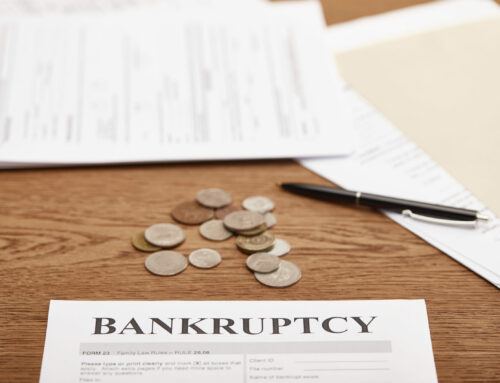
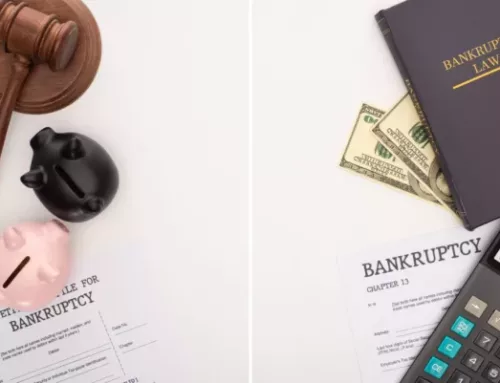
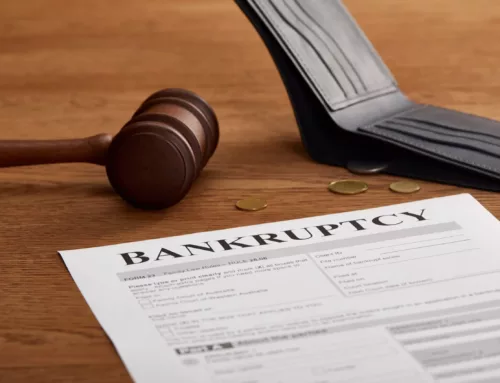
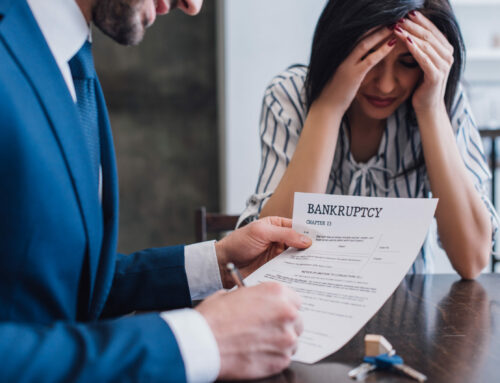
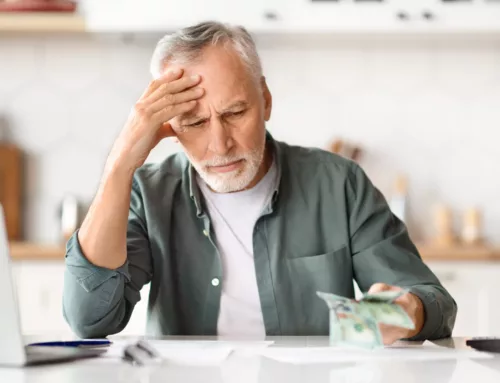
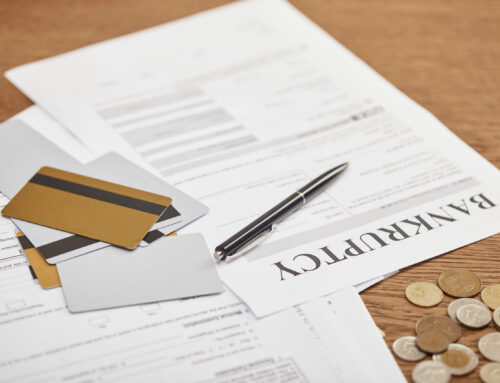

Connect with Us